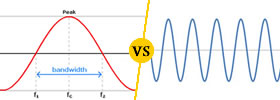Difference between Quit and Resign
Key Difference: Quit is just an informal way of saying resign. Both essentially mean the same thing, except resign is used in a more formal and professionally manner, whereas quit is more colloquial and informal.

For all purposes quit and resign are the same thing, they both indicate that an employee left their job out of their own free will. Quit is just an informal way of saying resign. Both essentially mean the same thing, except resign is used in a more formal and professionally manner, whereas quit is more colloquial and informal.
However, if one was to nitpick, they could come up with a couple of differences between the two terms. Other than quit being informal, and resign being professional and formal, quit gives the impression of somebody just getting up saying “I Quit” and walking out of the office. Hence, quit implies that they may have not served their notice period, not hand in an effective letter for quitting. As resign is more professional, it gives the implication that the person went about quitting the right way, which means that they handed in their resignation letter, and served out their notice period.
Quit implies that the person left on a bad note, or that they really weren’t happy there and as a result couldn’t wait to get out of there. Resign implies that the person may have left not because they needed to get out but rather that they may have gotten a better position elsewhere. Resign also implies that the person did not necessarily leave on a bad note, as they went about everything in the proper manner.
Additionally, quit may also imply that the person just up and quit and hence may not have another job position ready. This may mean that they will be unemployed for a period of time and may have to go on a job hunt after quitting. On the other hand, resign may imply that the person has another job position ready, and may join there immediately after they serve out their notice period.

Also if a person ups and quits their job without notice, they may not be applicable for compensation such as pay for leftover vacation days, etc., and hence may forfeit it. Whereas a person who goes about resigning the right way will still be eligible for this. A person who quits on the spot may also not get a favorable reference or recommendation for future job positions, whereas a person who properly resigns may get one as long as there as no other negative factors involved.
Comparison between Quit and Resign:
|
|
Quit |
Resign |
|
Type |
Leaving your job |
Leaving your job |
|
Description |
Quit is just an informal way of saying resign. Implies that the person may have left the job in an un professional manner. |
Resign is the formal way of saying quit, which implies that the person left the job is a professional manner. |
|
Mode |
Informal |
Formal |
|
Professional |
Unprofessional |
Professional |
|
Satisfaction |
May imply that the person was not satisfied with their job and hence wanted to quit. |
Implies that another opportunity came around which is why the person resigned and not because they need to get out of there. |
|
Notice Period |
May or may not serve notice period |
Often serve notice period, unless not applicable |
|
Job |
May or may not have next job lined up. |
Usually have next job lined up. |
|
Reference |
May not get a good reference |
Will possibly get a good reference |
Image Courtesy: thegrindstone.com, adminbandit.com.au









Add new comment